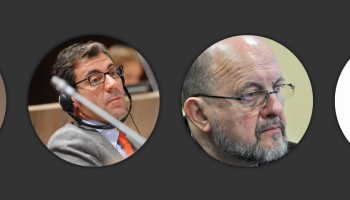Azerbaijan allegedly influenced the Parliamentary Assembly of the Council of Europe’s (PACE) rejection of a 2013 report outlining human rights abuses in the ex-Soviet state and urging the authorities there to release political prisoners.
An investigation published in December by a human rights think-tank, claimed that some parliamentarians in PACE had engaged in political lobbying for Azerbaijan.
The oil-rich state has for years been accused of "caviar diplomacy" or offering cash and luxury gifts to assembly members in exchange for legitimacy to the authoritarian rule of its president, Ilham Aliyev.
The corruption was first brought to light when Italian prosecutors began investigating a former chair of the centre-right group, Luca Volontè who was accused of accepting €2.39 million (US$2.5 million) in bribes from Azerbaijan in exchange for efforts to mute the European body’s criticism of Azerbaijan’s human rights record.
In April, the Guardian quoted a former Azeri diplomat, as saying that a member of Azerbaijan’s delegation at the Council of Europe had €30 million (US$ 32 million) to spend on lobbying its institutions including the Council of Europe assembly.
The Guardian also cited Tobias Billström, a Swedish delegate to the 324 member human rights assembly that "very credible members" had told him they had been offered bribes in exchange for favorable votes.
Three top international human rights lawyers will investigate the PACE corruption allegations and will report their findings by the end of 2017.
As part of the inquiry, PACE plans to revise its code of conduct.






